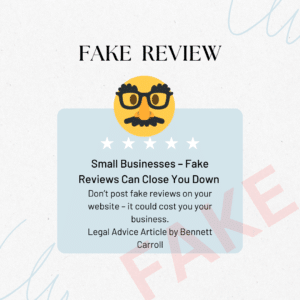Selecting the right business structure is one of the most important decisions a startup in Queensland can make. The structure you choose affects your liability, tax obligations, compliance requirements, and ability to attract investors.
This guide from Bennett Carroll Solicitors explains the pros and cons of sole trader, partnership, company, trust, and joint venture structures—helping you make an informed choice that protects your interests and supports your business goals.
Why Your Business Structure Matters
Your legal structure determines:
- Personal liability – Could your home or savings be at risk if the business faces debts or legal claims?
- Tax rates – Companies pay a flat 25% tax rate (for businesses under $50M turnover); sole traders pay individual rates.
- Setup and compliance costs – Some structures have higher setup fees and ongoing reporting obligations.
- Growth potential – Certain structures make it easier to bring on investors or scale the business.
Choosing the wrong structure can lead to tax headaches, legal risks, or barriers to funding.
💡 Planning your startup journey? Don’t miss our guide on essential business compliance dates for Queensland business owners.
1. Sole Trader: Simple but Risky
What It Is: A sole trader operates as an individual, with no legal separation between personal and business assets.
Advantages:
- Low setup cost (ASIC registration starts at $99).
- Full control over decisions.
- Income reported through personal tax return.
Disadvantages:
- Unlimited liability: Your personal assets are at risk if the business is sued or in debt.
- Limited access to capital—can’t issue shares or take on investors.
- May appear less professional to clients.
Best for: Freelancers, consultants, and low-risk businesses.
Example: A Brisbane-based graphic designer registered as a sole trader. When a client sued over a contract dispute, her personal savings and home were exposed.
2. Partnership: Shared Effort, Shared Risk
What It Is: Two or more people (or entities) operate the business together under the Partnership Act 1891 (QLD).
Types:
- General Partnership: All partners share responsibility and liability.
- Limited Partnership: Some partners contribute capital but have limited liability.
Advantages:
- Pooled resources and skills.
- No public disclosure of profits (unlike companies).
Disadvantages:
- Joint and several liability: Each partner is personally liable for the others’ debts.
- Risk of disputes without a clear agreement.
📝 Tip: Always have a formal partnership agreement outlining roles, profit-sharing, and exit plans. We can help you draft one.
Best for: Professional services firms and family-run businesses.
Explore our article on business contract essentials to understand how clear agreements can protect your interests.
3. Company: Limited Liability and Growth Potential
What It Is: A company is a separate legal entity under the Corporations Act 2001. Shareholders’ liability is limited to their investment.
Advantages:
- Personal assets protected from most business debts.
- Easier to raise funds by issuing shares.
- Enhanced credibility with clients and investors.
Disadvantages:
- Higher setup costs (ASIC fees range from $500–$1,000+).
- Ongoing compliance (e.g., annual ASIC reporting, director duties).
- Double taxation: profits taxed at corporate level, then dividends taxed personally.
Example: A Gold Coast tech startup formed a company to attract venture capital. This allowed them to issue shares and protect the founders’ assets.
📚 Thinking of buying an existing company? Read our Tips and Traps series on buying a business or dive into our Walk-In Walk-Out contract guide.
4. Trust: Flexibility for Tax and Asset Protection
What It Is: A trust is a legal arrangement where a trustee holds and manages assets for beneficiaries. Common types include discretionary trusts and unit trusts.
Advantages:
- Can distribute income to beneficiaries in lower tax brackets.
- Asset protection benefits for beneficiaries.
- Flexibility in how profits are distributed.
Disadvantages:
- Higher setup costs ($2,000–$5,000+).
- Complex to wind up or restructure.
- Must lodge annual tax returns and trust distribution statements.
Best for: Family-run businesses, property ventures, or tax-optimised structures.
5. Joint Venture: Working Together, Staying Separate
What It Is: A contractual agreement between parties for a specific project, without forming a new legal entity.
Advantages:
- Share resources, expertise, and risk.
- No need to form a new company or partnership.
Disadvantages:
- Liability depends on the JV agreement terms.
- Disputes over profits, responsibilities, or decision-making can arise.
Example: Two Brisbane construction firms formed a joint venture to bid on a major infrastructure project—combining resources without merging their operations.
Learn more about choosing the right model in our Business Structures Guide.
Key Considerations When Choosing a Structure
✅ Risk Exposure – Are you in a high-risk field like construction, finance, or health?
✅ Tax Position – Each structure comes with different tax consequences.
✅ Future Plans – Planning to scale or attract investors later?
✅ Setup & Compliance Costs – Ongoing ASIC fees, tax filings, and admin can add up.
Thinking long-term? Our Commercial Law team helps businesses structure for growth, security, and scale.
How to Change Your Business Structure
Many startups begin as sole traders or partnerships and shift to companies or trusts as they grow. The process generally involves:
- Registering the new entity (e.g., company or trust).
- Transferring key assets, contracts, and registrations.
- Cancelling the old ABN and updating the ATO.
Important: Changing structures can trigger tax consequences like capital gains tax. Get proper legal and tax advice before you proceed.
Common Mistakes to Avoid
🚫 Mixing Personal and Business Finances – Risking personal liability.
🚫 Ignoring Director Duties – Directors have strict legal responsibilities under the Corporations Act.
🚫 Skipping Formal Agreements – Partnerships, shareholder agreements, and trusts all need clear terms.
How Bennett Carroll Solicitors Can Help
At Bennett Carroll Solicitors, we support startups across Brisbane, the Gold Coast, and beyond with:
✅ Business Structure Advice – Helping you choose the right structure for your goals.
✅ Company and Trust Setups – Fast, compliant setup with tailored legal documents.
✅ Partnership, JV, and Shareholder Agreements – Prevent future disputes with clear contracts.
Need clarity on your next steps? Contact us for practical, experienced advice—whether you’re starting up or restructuring.
Final Thoughts
Your business structure is the foundation of your success. While you can change it later, getting it right from the beginning helps avoid costly missteps down the track.
Speak with Bennett Carroll Solicitors to make an informed decision that supports your growth, protects your assets, and keeps you compliant under Queensland law.








